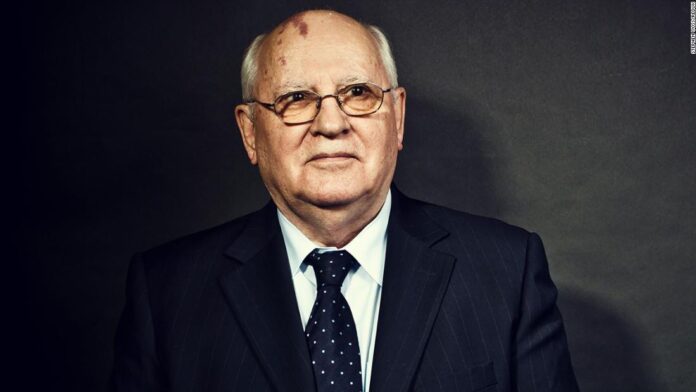The former and final Soviet leader, Mikhail Gorbachev, has passed away at the age of 91 due to a long and serious illness. Gorbachev, who came into power in 1985, was recognized for “ending the Cold War” by improving ties between USSR and the Western world. However, his actions led to the collapse of the Soviet Union in 1991. He was one of the most divisive historical figures, with the West hailing him as the hero for building bridges while Russians called him a traitor.
While being a powerful leader of the Soviet Union, Gorbachev realized the need for reforms. He launched a revolutionary set of policies called perestroika (reconstruction) to give people more freedom and make the economy more liberal. The West appreciated the move, but Russians denounced him for breaking an empire of 15 nations and plunging them into crisis.
Mikhail Gorbachev Praised for Opening the Door to the West
Despite the condemnation back home, several world leaders have praised Mikhail Gorbachev for his efforts in making peace with them. During his six years as General Secretary of the Communist Party of the Soviet Union from 1985 to 1991, he brought about the German reunification, caused the fall of Marxist-Lenin directorates, and built partnerships with Western nations to remove the Iron Curtain. This ideological barrier separated Europe from the capitalist world since World War II. European leader Ursula von der Leyen thanked Gorbachev for laying the foundation of political and economic freedoms.
Many leaders have also compared the leadership of Gorbachev with the current Russian government led by Vladimir Putin. They believe that Russia has destroyed what Gorbachev stood for by invading Ukraine. UK Prime Minister Boris Johnson hailed Gorbachev’s commitment to peaceful resolutions while criticizing Putin’s view of the West.
A Traitor to Socialism
Although he did not intend to end the Soviet Union, Mikhail Gorbachev only believed that he was bringing a much-needed change. He provided more power to the industrialists, setting a precedent for Russia’s first capitalists. This had different effects on different people. The West saw it as progress, while the locals saw it as falling into the “American Dream” trap. Then-US President Ronald Reagan saw the Soviet Union as an evil empire but was impressed after meeting Gorbachev. He was the kind of leader the West could deal with. Both signed an Intermediate-Range Nuclear Forces Treaty that ended a particular class of nuclear weapons.
Gorbachev received a Nobel Peace Prize in 1990 for playing a part in ending the Cold War. However, the move was frowned upon in Russia, with locals asking The Nobel Committee to spend some time in their country and see what it was like rather than making the decision based on western satisfaction.
The post-soviet era was tumultuous for average Russians, who grew poorer while a small chunk became wealthier. Russia’s economy plummeted by 40% between 1990 and 1997, almost reflecting the Great Depression of the US that lasted from 1929 to 1940. Many took to social media to recall the horrors of post-soviet Russia marred by power struggles leading to a constitutional crisis. Average Russians suffered the most due to hyperinflation caused by rampant privatization, which eventually led to the rise of oligarchs.
Response from Russia
Putin also responded to the passing of Mikhail Gorbachev, acknowledging his “huge impact on the course of history”. The president also recognized Gorbachev’s reforms because he thought they were necessary and offered solutions to urgent issues. However, Putin’s spokesperson said that Gorbachev was “wrong to believe in romance with the west”. He added that Gorbachev was sincere in ending the Cold War and forging friendships, but the same could not be said about the West as the “romanticism” turned out to be wrong.
Gorbachev and Putin shared a problematic relationship. According to reports, their last meeting happened in 2006. Putin vocally blamed Gorbachev for bending to the will of the “treacherous and duplicitous” West and ending the Soviet Union. On the other hand, Gorbachev criticized Putin for invading Ukraine but agreed with his view that “Russia and Ukraine are one”. He also warned against the West trying to pull Ukraine into NATO, saying that such a move would bring hostility between Ukraine and Russia.
He had also supported Russia’s annexation of the Crimean peninsula in 2014, saying that it represented the will of the people in the region who identified as Russians.


